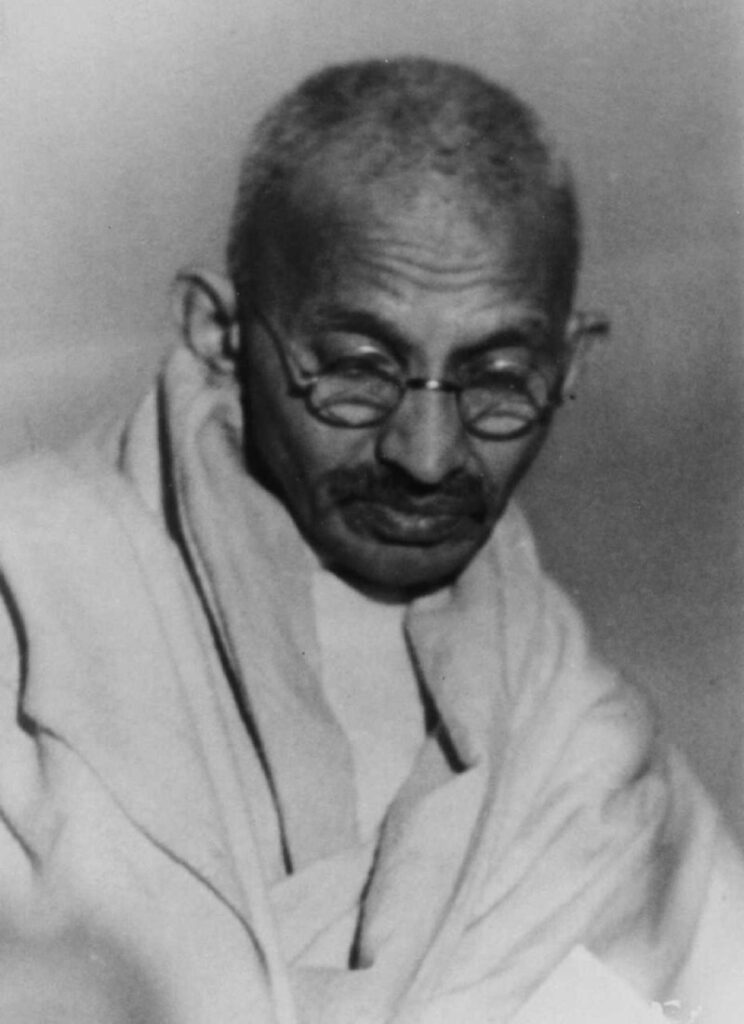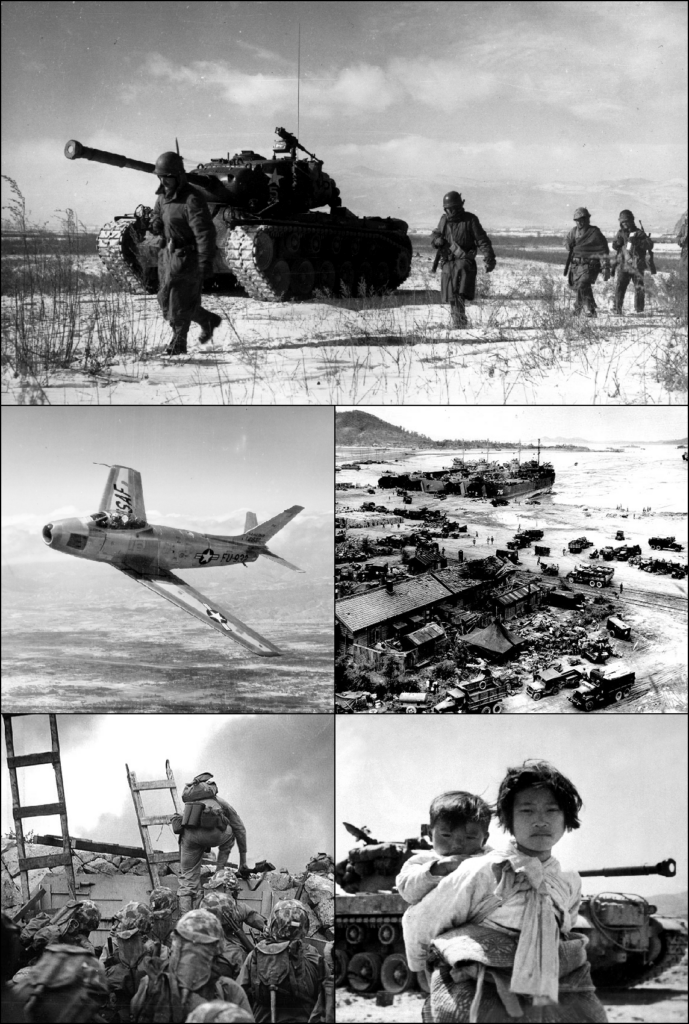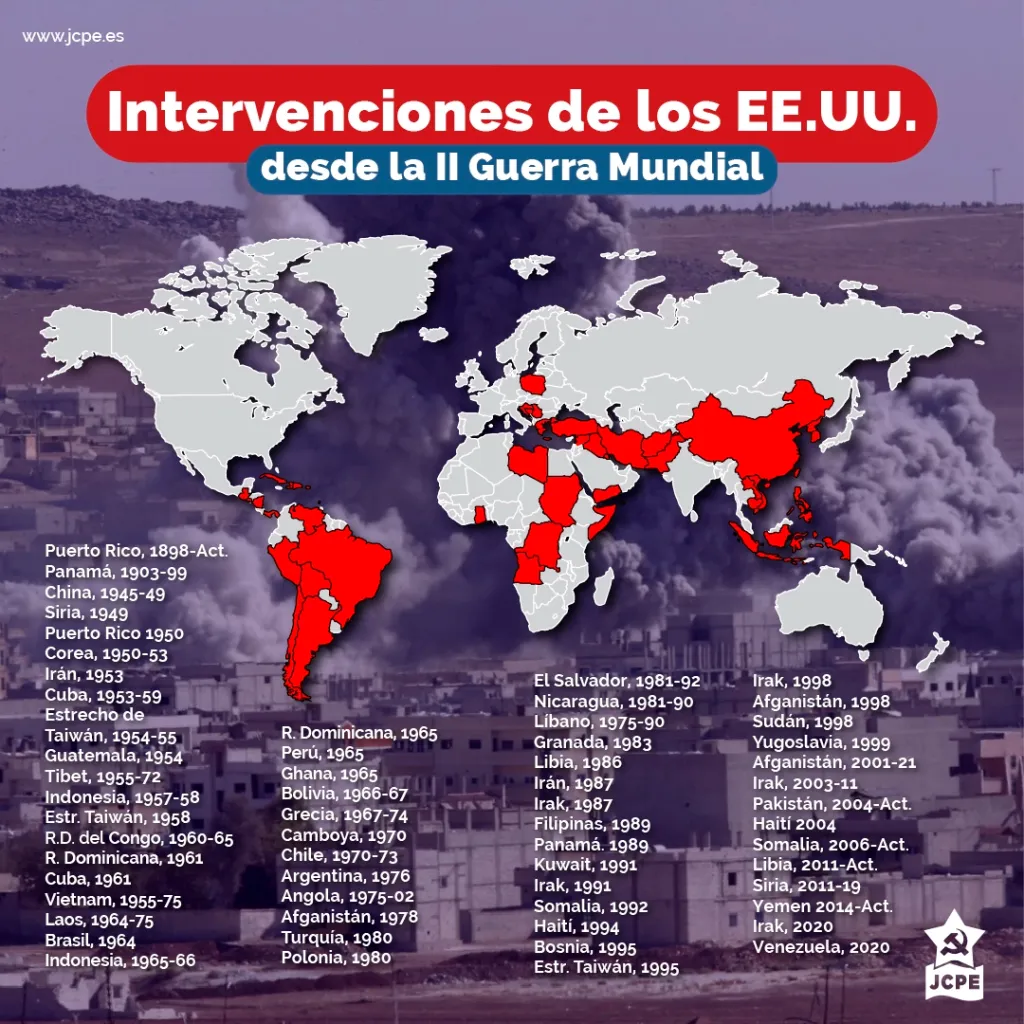October 2nd marks the World Day of Nonviolence, the anniversary of the birth of Mahatma Gandhi, the leader of the Indian Independence movement. For Gandhi, it was a question of not submitting to the subjugation that led to the suffering of the people, but of fighting it through the philosophy of nonviolence.
By Javier Belda
In the present day, it would be difficult and complex to detail all the situations of violence that humanity suffers today. We will therefore dedicate this article to one particular issue, concerning the preoccupying situation of nuclear armament.

es.wikiquote.org/wiki/Mahatma_Gandhi#/media/Archivo:Gandhi.jpg
At the beginning of the last century humanity made important discoveries about the 4 mysterious forces that dominate nature. One of these forces was the one that held the nucleus of the atom together and made it virtually indivisible. It was then observed that if this nucleus was broken apart, a chain reaction was triggered, creating chaos for the inner structure of matter. The fragmentation emitted neutrons, gamma rays, as well as large amounts of energy.
During World War II, Nazi Germany began to investigate the use of the discoveries of quantum physics to make an atomic bomb.
The US picked up on this research by recruiting scientists who had been in Hitler’s service. This led to the launch of the “Manhattan Project”, which led to the construction of the first atomic bomb in 1942.
Two years after the defeat at Stalingrad, Nazi Germany signed its surrender in Berlin on 9 May 1945. The signatories were Wilhelm Keitel on the German side and Georgy Zhukov on the Russian side.
Less than two months after the end of the world war, the US tested the effect of the atomic bomb by directing it on the population in the cities of Hiroshima and Nagasaki.
A distorted historical account gives Dwight Eisenhower too much prominence in the capitulation of Nazism, but Eisenhower’s real crusade came after, directed at all things communist.
In the first year of his presidency, Dwight, indifferent to the genocide in Japan, threatened to use nuclear weapons to end the Korean War; his new political image prioritised the mass construction of cheap nuclear weapons. He ordered coups in Iran and Guatemala and gave strong economic support to the newly created South Vietnam.
Between 1950 and 1953 the US carried out relentless and indiscriminate air strikes that flattened cities and villages in the communist republic of Korea, killing tens of thousands of civilians.
General MacArthur was the driving force behind the US scorched-earth policy, famously saying “we bombed everything that moved”.
In the three years of war, 635,000 tons of bombs dropped on North Korea. According to Pyongyang’s official figures, 5,000 schools, 1,000 hospitals and 600,000 homes were destroyed.
“Seventy years ago, in Korea it was impossible to lead a normal life above ground, the whole country moved its life underground.”[1] A Soviet document issued by the Soviet Union in November 2001 stated that “the Soviet Union was the first to destroy North Korea.
A Soviet document issued shortly after the armistice was signed in 1953 put the number of civilians who perished in bomber raids alone at 282,000.

https://es.wikipedia.org/wiki/Archivo:Korean_War_Montage_2.png
After that, the war against communism continued in Vietnam, where the orgy of bloodshed went on for more than ten years, killing more than 3 million Vietnamese.
In short, since 1945 the US has been involved in 22 wars, including six invasions. It promoted at least 13 coups d’état. It repressed more than 7 revolutionary movements. It collaborated in 11 armed conflicts with other countries, without open warfare, be it destabilisation attempts, bombings or aggression. It maintained colonial occupations in several countries and was involved in several genocides, including the Sabra and Chatila Massacre, the Indonesian Genocide and the Matsé Genocide, etc. [2] In 1962, the famous crisis of the Soviet Union occurred, and in the mid-1980s, the US was involved in the genocide of the Soviet Union.
In 1962, the famous Caribbean crisis occurred, when the United States learned of the existence of the Soviet army’s medium-range nuclear missile bases in Cuba. Then a dizzying peace agreement between John F. Kennedy and Nikita Khrushchev managed to save the planetary civilisation from the brink of total annihilation.
After Kennedy was assassinated in 1963, coups d’état, CIA interventions and outright invasions by the United States continued unabated across the globe.
Another truncated peace agreement was the military de-escalation between Ronald Reagan and Soviet leader Mikhail Gorbachev in 1991. While the now dissolved Soviet Union began a progressive disarmament, its counterpart did the opposite. The CIA organised dissent through colour revolutions in the various former Soviet republics to turn them into direct enemies of Moscow, leading to the current situation where Russia is surrounded by NATO military bases.
During the 1970s, the Nuclear Non-Proliferation Treaty (NPT) was put in place.
Iran and North Korea, which the West considers potential nuclear threats, ratified the NPT, but in August 2004, US intelligence officials and “non-governmental experts” concluded that diplomatic efforts to prevent the proliferation of nuclear weapons in these countries had failed.
During our 21st century, an estimated 4.5 million people have lost their lives as a result of NATO invasions.
In 2017, negotiations began at the UN on the Treaty on the Prohibition of Nuclear Weapons, which currently has 93 signatories and 69 states parties.[3] The Treaty on the Non-Proliferation of Nuclear Weapons is the first of its kind in the world.
The Foreign Minister of the Russian Federation, Sergey Lavrov, during the General Debate of the 78th Session of the UN General Assembly, New York, 23 September 2023 made reference to the nuclear weapons issue in a section of his speech.
It is encouraging that the Arab League is gaining new momentum and stepping up its role in regional affairs. We are pleased to see the return of the Syrian Arab Republic to the Arab family and the normalisation process between Damascus and Ankara, which we are trying to assist together with our Iranian colleagues. These positive developments strengthen the efforts of the Astana format to promote a Syrian settlement on the basis of UN Security Council resolution 2254 and to restore the sovereignty of the Syrian Arab Republic.
We hope that, with the help of the UN, the Libyans will be able to prepare qualitatively for general elections in their long-suffering country, which for more than a decade has been unable to recover from the consequences of NATO aggression, which destroyed the Libyan state and led to the spread of terrorism in the Sahara-Sahel region and the wave of millions of illegal migrants to Europe and other parts of the world. Analysts point out: by abandoning the military nuclear programme, Muammar Gaddafi was destroyed. In doing so, the West has created the most dangerous risks for the entire nuclear non-proliferation regime.
Against this background, many of us believe that those who were responsible for dropping the nuclear bombs on Japan should unilaterally disarm as a first step in any treaty that claims to be credible.

Clearly, any initiative to eliminate these weapons that bring us closer to the end of the world is a good thing. However, the fundamental problem for humanity is the West’s war-mongering crusade that has continued unabated for decades. As Sergey Lavrov recalled, at another point in his speech at the UN.
In 1945, when Moscow, Washington and London were concluding the elimination of the enemy on the fronts of the Second World War, our allies were already plotting the military operation Unthinkable against the Soviet Union. And four years later, in 1949, the Americans developed Operation Dropshot for massive nuclear strikes against the USSR.
Given the facts and the political-economic line of the BRICS, it is clear that this is not an alliance for war but for the progressive development of nations. Another section of Lavrov’s statement was dedicated to this nascent alliance for peace.
[…] the logic of the historical process cannot be stopped. The main trend has become the desire of the World Majority to strengthen their sovereignty and defend their national interests, traditions, culture and life. They no longer want to live at the dictate of another, they want to have friendship and trade not only with each other, but with the whole world, but as equals and for mutual benefit. Partnerships such as the BRICS and the SCO are on the rise, offering the countries of the Global South opportunities for joint development and defence of their worthy place in the objectively nascent multipolar system.
For the first time since 1945, when the UN was founded, there may be the possibility of a genuine democratisation of world affairs. This is hopeful for all those who believe in the rule of international law and want the UN to return to being the central coordinating body of world politics, where it is agreed how to solve common problems on the basis of a fair balance of interests.
[A new type of organisation, where there are no leaders and led, no teachers and pupils, and where all issues are resolved on the basis of consensus and a balance of interests, is called upon to reinforce the UN reforms. It is first and foremost the BRICS, which considerably increased their authority after the Johannesburg Summit and gained real global influence. [4]
On this basis neither those who have been betrayed in previous peace agreements, nor the countries that have suffered NATO attack, should be asked to start with the dismantling of nuclear weapons.
Therefore, in the face of historical evidence, any disarmament treaty must first and foremost involve the demilitarisation of those who promote wars. It is not right to put aggressors and aggressed on the same level.
Similarly, any peace treaty, if nothing else, should consider Russia’s Special Military Operation for the denazification and demilitarisation of Ukraine as an operation to prevent progressive devastation and to start creating conditions for peace.
[1] “We bombed everything that moved”, the massive air strikes that explain North Korea’s historic grudge against the US.
[2] How many coups and wars has the US been involved in?
[3] https://www.icanw.org/signature_and_ratification_status
[4] Ministry of Foreign Affairs of the Russian Federation






